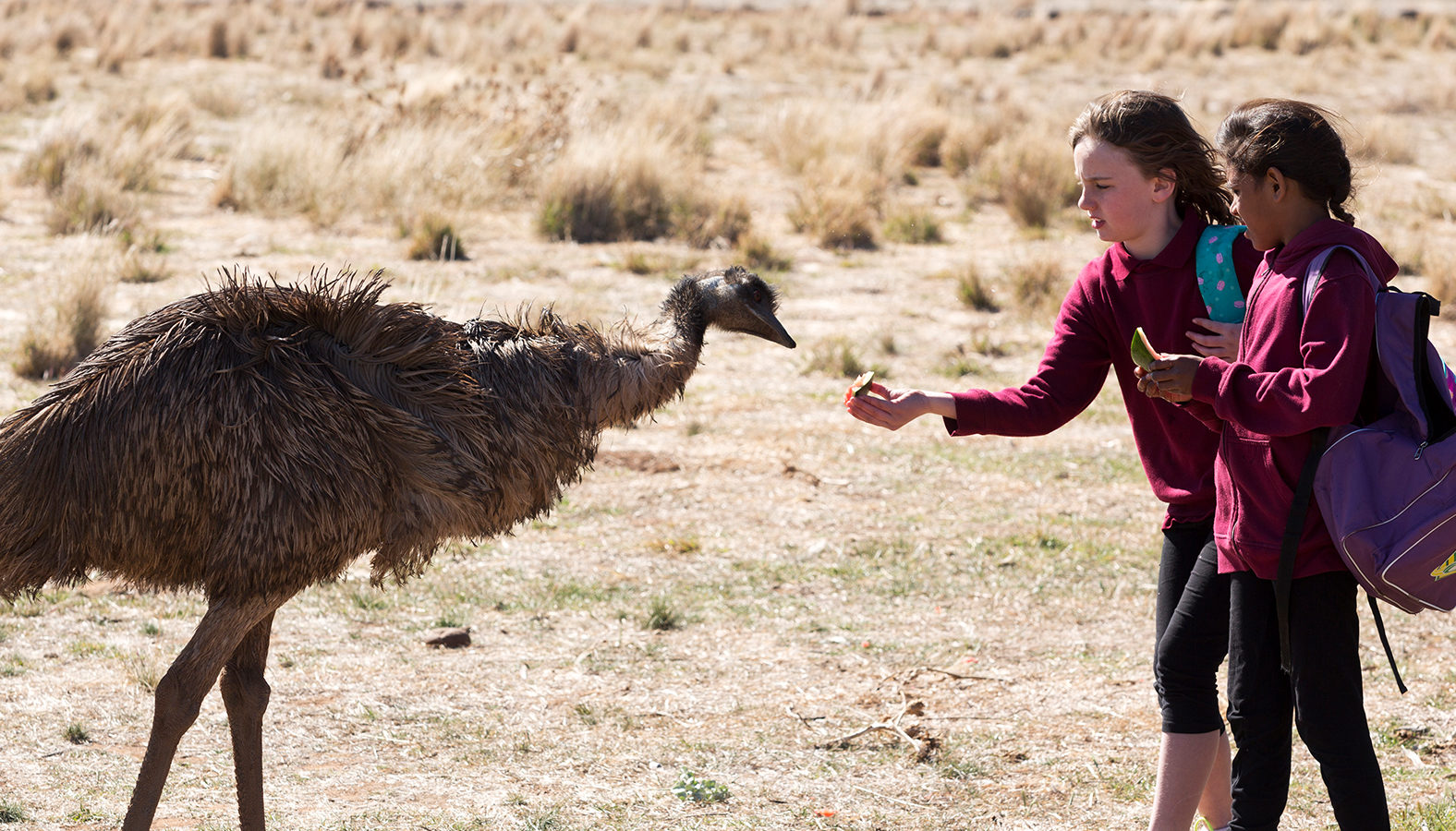One of the things important in life is culture, which is incredibly important for Indigenous Australians as their whole lives can be shaped by it. Emu Runner is the feature length debut from Australian director Imogen Thomas, who worked closely with the Indigenous community of Brewarrina, NSW for 15 years to develop this film, and evidence of the close collaboration really shines through.
Rhae-Kye Waites stars as Gem, the heart and soul of this film, a 9-year-old girl whose life is thrown into chaos after the sudden death of her mother. Struggling to cope with the loss, Gem befriends a wild emu and forms a deep connection with the majestic bird. But this bond comes at a cost, as Gem starts skipping school and stealing food to feed the emu, which lands her in hot water with not only her father, but the authorities too.
Rhae-Kye is fantastic in this film, especially considering this is her first role ever, as she was picked from the students at Brewarrina Primary School. Maybe it was due to Rhae-Kye’s lack of a formal acting background, but on-screen her performance was strong, seemed natural and felt raw and real. Apart from a few other lead roles, such as Gem’s father played by Wayne Blair and social worker Heidi played by Georgia Blizzard, the cast is predominantly made up from members of the Ngemba indigenous community, which I think is a fantastic idea. In some scenes they may not have the best delivery of their lines, appearing a little stiff, but overall they do a great job and give this film even more spirit and meaning.
The cinematic style of this film is very stripped back and simple, no fancy effects or camera tricks here, but it still comes across as visually stunning, especially with its shots of beautiful landscapes and scenes with the emu – these are fantastic. The more intimate scenes between characters seem to display a more ‘fly on the wall’ feel, with tight frames really drawing you into the scene and at times making you feel like part of the conversation.
Emu Runner is a fantastic little Australian film with great heart and spirit. Although it isn’t perfect, the film does tell a wonderful story and touches on many other deeper issues that affect remote Australian communities, such as drug and alcohol abuse. Despite these deeper issues being addressed, these messages do not deter nor overshadow the true meaning of the film. I strongly recommend that you get out there and see this film, and a bit of warning beforehand, but it’s probably best you pack the tissues.
